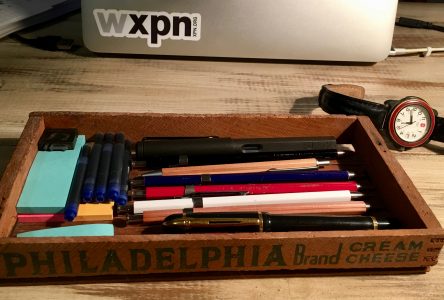As I started reading “How to do Nothing” again, I became even more interested in Odell’s writing and how she talks about anti-productivity and doing nothing. Again, she uses more of her experiences and things she has learned, to shift the reader’s perception and make them think. The main thing I dug into in my first writing piece was Odell’s idea of the natural world around us and how many take in for granted in many different ways. Going with that I also talked of the connection of the natural world, the importance of anti-productivity, and the social construct of time that Odell talks about. These things can go hand-in-hand in helping one reach some sort of self-enlightenment as well as learn, notice, and experience more.
One thing I failed to mention more of in my previous writing was Odell’s point of technology and social media and how they distract so many people from the natural world I talked about. For hours and hours, people (including myself) play games, scroll through feeds, and watch media, for the most part mindlessly. This is exactly what Odell goes against in her writing, although she doesn’t mean that we should just get rid of phones. The main idea is that we should build more of a relationship with our devices and go through a detox of sorts. Odell talks a lot about Levi Felix and his work with Digital Detox/Camp Grounded and how it came to. Felix was one who came by way too much pressure due to technology and even suffered physical distress due to how much stress he experienced in his work with Causecast. Eventually he decided to “disconnect” and he founded Camp Grounded which was inspired by The Burning Man and was a resort type getaway where visitors were cut off from technology and their phones and participated in activities with others. This helped Felix himself with countering stress and made way to help others and spread the word of digital detox. This also goes hand-in-hand with Epicurus’ “The Garden” and the commune movement of the 60s. Even in times without the technology and phones that distract us, people always tried to find ways to escape the rush and distraction of society and find some place of solace and peace. This also connects back with the Rose Garden Odell would visit, that was her get away and place for her to let her mind free and do “nothing”.
One thing I start to do is connect bits and pieces to my own experiences and life, almost putting myself in Odell’s place, trying to learn and feel more. Growing up, my school district and community always pushed students to do as much as they can. To be involved, and stay involved was one thing that was told to us every year from middle school and up to graduation. They told us that always having a club, sport, or class to focus on and keep up busy would only benefit us in the long run. This idea may benefit us in terms of good grades or getting into college, but in terms of actually learning and finding out what we want to do in the future, this is not efficient. Students have so much on their plate and when one kid has so many things on their mind, work to do, and places to go, it can almost block their sense of learning, and they just do tasks like a machine, waiting to be done going through the program.
Going along with the trouble of doing too much and the need for personal solace, I connect another thing in my life where I have been able to kind of have my own getaway from technology and the rush. My family and I have a house a bit upstate in Sullivan County. Actually, both my mom and dad have their own house up there in the same town (my mom got her own when they got divorced). The town is called Yulan and it is a very small, rural-ish town with many lakes and woods. The catch is that there is very little cell service and at my mom’s house, there is no WiFi. Every summer we always go up for a couple days at a time and when I go to my moms, my phone becomes that useless “brick” Odell mentions. I take my time away from social media and do things I would rarely do at home like go on walks, read, and just use the time to think more about whatever is going on in my life. I like this quote by Odell, she says, “we absolutely require distance and time to be able to see the mechanisms we thoughtlessly submit to”. This absolutely fits in with the whole narrative of needing that away time and solace from the bustle of media and tech.
The main thing I’m getting at is that when you combine both thought processes of detoxing and limiting your phone/media use with the opposition of having to be busy all the time, one can further their ability to let their mind free or do “nothing”. People can use this time of thinking to help them in internal/external conflicts, relationships, shifting perspectives, brainstorming, and even their work.


